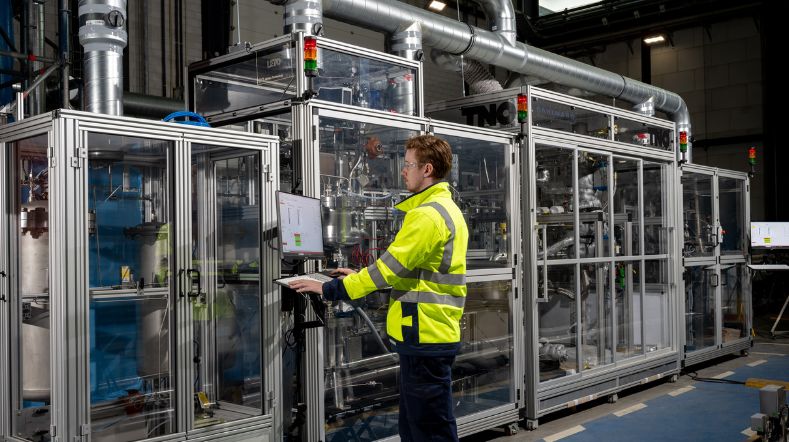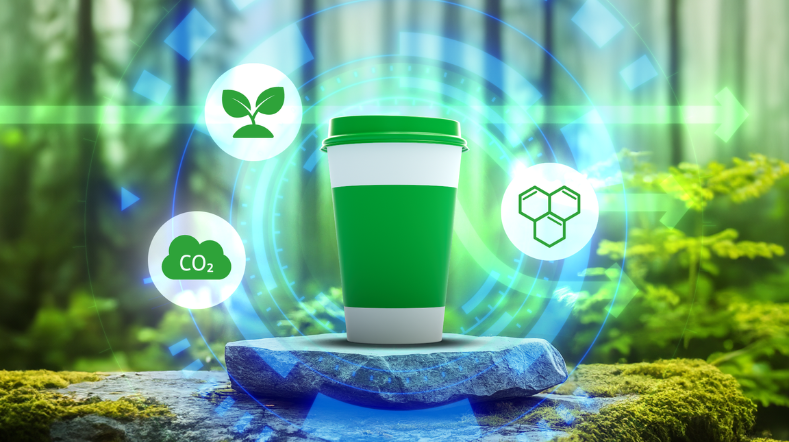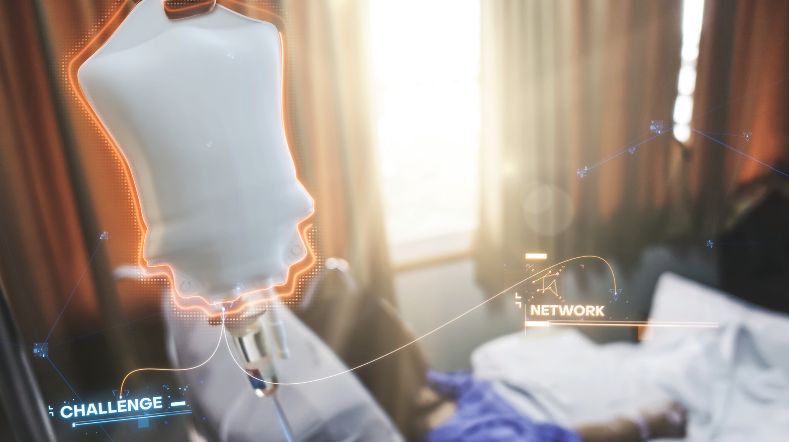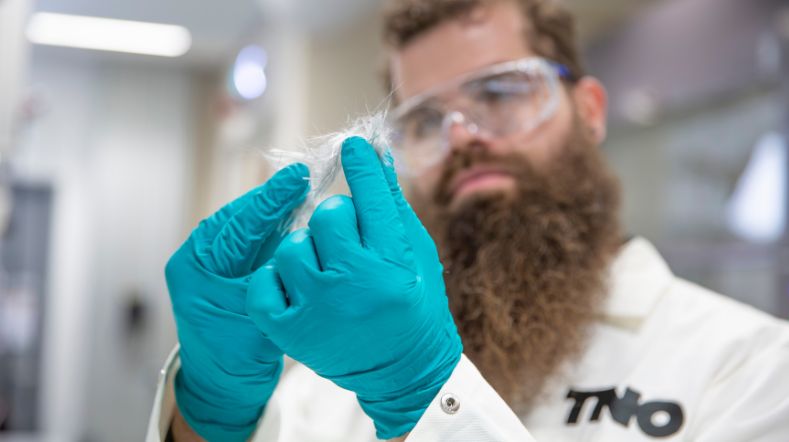
From plastic waste to circular plastics
Less plastic waste, lower CO2 emissions, and less use of fossil raw materials. To achieve this, we’re doing independent research on circular plastics. From innovations for new plastic product designs to sustainable technologies for recycling plastics. With circular plastics, we’re contributing to a more sustainable future.
Increased use of plastics
Plastics are strong, flexible, and lightweight, and these versatile properties mean that their use continues to increase. Between now and 2050, plastic use is expected to rise from 350 million tonnes to more than 1 billion tonnes, due among other things to:
- the growth in population and wealth in Africa and Asia
- the use of more and smaller packaging
- societal developments, such as urbanisation and family composition.
This brings major challenges, such as plastic waste, use of fossil raw materials, and CO2 emissions. We therefore need a systems transition. We’re keen to contribute to innovative solutions through research on circular plastics.
Increase in microplastics
With the increasing use of plastics, more and more microplastics are formed as well. These solid particles, smaller than 5 millimeters, are created through wear and tear during use, and are formed through the degradation of plastic waste present in the environment.
Microplastics are potentially harmful to humans and the environment. Therefore, the Dutch government applies the precautionary principle, whereby we must minimize the use, formation and spread of microplastics.
By 2022, we have conducted extensive research on microplastics and identified the major contributors to microplastics and measures to reduce microplastics.

Read why reducing microplastics is essential and achievable
Circular plastics
For the transition to circular plastics, we take a close look at the entire supply chain. From the impact of different scenarios on CO2 emissions and material use to health and economic feasibility.
To this end, we combine our expertise in life cycle analysis and life cycle costing with technological knowledge of recycling techniques.
We make the right choices – systemic and otherwise – based on impact assessments of the plastics value chains. The guiding principle is the preservation of economic, ecological, and societal values in the chain.
Recycling of plastic products
Because successful recycling starts with good design, we develop short, medium, and long-term plans for circular plastics. For this purpose, we combine laboratory research, pilot tests, and advice.
We’re also developing technologies to improve sorting and mechanical recycling, such as our Upwash technology. In the Brightlands Materials Center, we develop new packaging that’s more recyclable. And in the public-private partnership Brightsite, we create, for example, industrial demos in the area of chemical recycling.
Thermochemical and physical recycling of plastics
In other research, we're developing new technologies to recycle plastics, in addition to mechanical and chemical recycling.
For instance, we are working on technology to physically recycle plastics by dissolution. A solvent used to dissolve one polymer and not another. As an example, we separate monomers or polymers from additives such as flame retardants.
We also work on thermochemical recycling methods of plastics. A suitable method to reuse mixed and contaminated plastic streams as feedstock for the chemical industry.
Want to know more?
Download our white paper ‘Don’t waste it! The dark side of today’s plastics must be tackled urgently’.
Customised solutions for a sustainable industry
TNO works with partners and offers knowledge, innovation and concrete solutions for companies, government and suppliers. In a nutshell, we call this TNO Green Prints. A TNO Green Print is a blueprint for radical greening of your value chain in the industrial sector.
Customisation: from calculation models leading to new government policy, scaling up electrolysis, CO2 capture solutions for the chemical industry, designing circular products to technologies to recycle and reuse plastics. All available knowledge, experience and innovations are processed in a TNO Green Print into a specific solution. In this way you can contribute to the acceleration of a clean industry in 2050.
Get inspired
From lab to market: TNO steps up sustainable plastic recycling with dissolution


Webinar: Biobased plastics in a sustainable future


Biobased plasticisers: from compliance to competitive edge


Early results show the potential of circular healthcare plastics


Enhanced solvolysis contributes to the future of composite recycling


